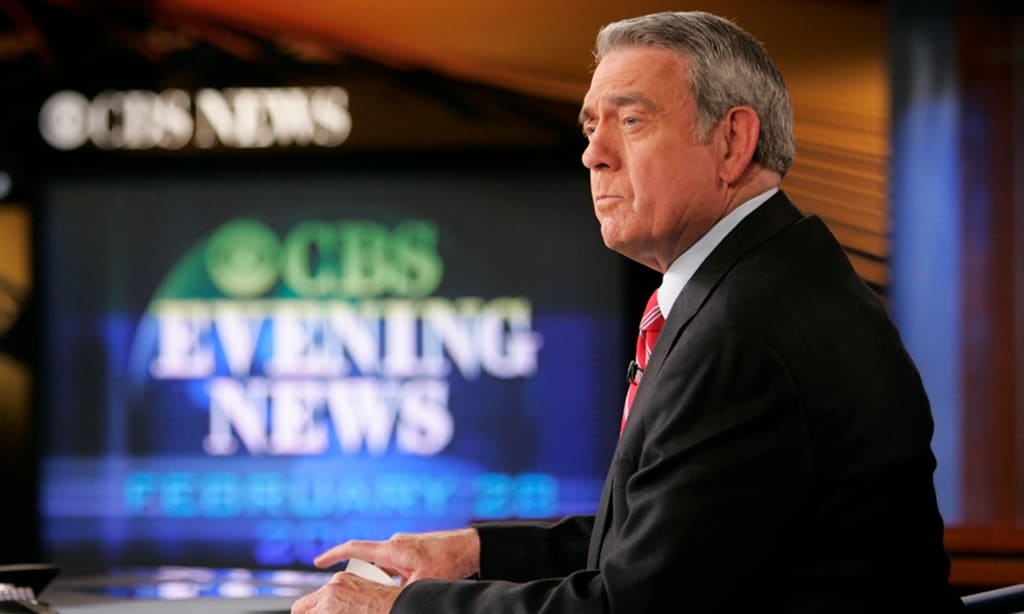News
Texas Battles Adult Movie Industry Over Age Verification

The recent legal battle over Texas’ anti-pornography law has garnered attention from both free speech advocates and opponents of the legislation. The law, which aimed to impose stringent age verification measures on adult websites like Phub, XVideos, and XNXX , was blocked by a federal judge just before its scheduled enforcement.
This decision has significant implications for similar laws being considered across the United States. The controversy has pitted proponents of internet freedom against those seeking to restrict access to adult content, sparking a heated debate over constitutional rights and privacy concerns.
The Battle Over Age Verification Laws in Texas
The implementation of age verification laws for online adult content has sparked debates and legal battles across the United States. Texas has been at the forefront of this contentious issue, with the recent enactment of H.B. 1181, which aims to enforce strict age verification requirements for accessing adult content online.
Texas Leads the Charge with H.B. 1181
H.B. 1181 is a significant legislative effort to regulate access to adult content online, requiring websites to verify the age of their users and provide warnings about potential harm to minors. The law has faced legal challenges, with concerns raised about its alignment with First Amendment protections and its potential impact on the adult entertainment industry.
The Rise of Age Verification Laws Across the US
The push for age verification laws is not limited to Texas. Several other states have also introduced or enacted similar legislation in an effort to address concerns regarding minors accessing explicit content on the internet. This trend reflects a growing national debate on the balance between protecting minors and upholding free speech rights in the digital age.
The Intended Purpose of the Laws
After the Texas Legislature passed House Bill 1181 earlier this year, pornography companies, including the owners or operators of Pornhub, XVideos, and XNXX, filed a lawsuit attempting to prevent the law from going into effect. The legislation requires websites hosting adult content to verify a user’s age and include a warning describing the harmful medical and societal side effects of pornography consumption.
The primary objective of age verification laws is to safeguard minors from exposure to inappropriate or harmful material on the internet. Supporters argue that these laws are necessary to mitigate the risks associated with unrestricted access to adult content. However, opponents have raised constitutional and practical concerns about the effectiveness and potential unintended consequences of such regulatory measures.
For more information about the legal implications and ongoing developments concerning age verification laws, visit Bloomberg Law for in-depth analysis and expert insights.
Legal Challenges to Texas’ Age Verification Requirements
The Free Speech Coalition, a group advocating for the adult entertainment industry, has taken a strong stance against Texas’ age verification law, contending that it imposes unreasonably burdensome requirements on pornography websites. The coalition argues that the law infringes on First Amendment rights by compelling websites to verify the age of their users and display warnings about potential harms to minors.
The Free Speech Coalition’s Stance
The Free Speech Coalition asserts that the law’s mandate for age verification and warnings does not align with the intended objective of safeguarding minors, instead imposing undue restrictions on free expression. The coalition argues that the law lacks the necessary specificity and tailored approach to withstand constitutional scrutiny.
The Lawsuit Against H.B. 1181
In response to the implementation of H.B. 1181, the adult entertainment industry, represented by the Free Speech Coalition, has filed a lawsuit challenging the constitutionality of the law. The lawsuit contends that the age verification requirement places an unjustifiable burden on websites and fails to adequately address the protection of minors from explicit content.
Privacy Concerns and First Amendment Rights
The lawsuit against H.B. 1181 also raises concerns about privacy infringement and the potential chilling effect on First Amendment rights. The requirement for websites to collect and verify user information raises privacy apprehensions, while the forced display of warnings may impact the free exchange of ideas and artistic expression.
By contesting the constitutionality of Texas’ age verification law, the Free Speech Coalition aims to protect the rights of the adult entertainment industry and uphold principles of free speech and privacy. The lawsuit reflects broader concerns about the balance between safeguarding minors and preserving constitutional rights within the digital landscape.
Judge Ezra’s Injunction on Texas Law
The Arguments for Blocking the Law
Judge David Ezra’s decision to block the Texas law requiring age verification and health warnings on pornographic websites was based on the violation of free speech rights. This ruling supports the argument that such laws are overbroad and vague, thus impinging on individuals’ freedom of expression. The privacy concerns raised by the mandatory age verification process, which involves government-issued identification, further strengthened the case for blocking the law.
Comparison with Existing Parental Filters
In his ruling, Judge Ezra highlighted the existence of alternative measures for protecting minors from adult content online, such as blocking and filtering software. These methods were deemed more effective and less restrictive compared to the law’s requirements, demonstrating that there are other viable options for safeguarding children from inappropriate material on the internet.
Implications of the Health Warnings Mandate
The law’s mandate for adult websites to display health warnings regarding the effects of pornography was deemed unconstitutional by Judge Ezra. The requirement to post disputed health warnings, claiming that pornography is addictive and contributes to various societal issues, was considered a form of compelled speech. This has significant implications for the regulation of online content and the protection of free speech rights.
For more information on the legal aspects of this ruling, you can refer to the House Bill 1181 and the Fifth Circuit U.S. Court of Appeals in New Orleans.
Impact on Adult Content Providers and Users
The recent Texas age verification law has had a significant impact on adult content providers and users, with major players like Xvideos and Pornhub facing challenges in ensuring compliance with the new regulations. This has led to changes in the accessibility of adult content and raised broader implications for safe sex and LGBTQ resources.
Role of Major Players like Xvideos and Pornhub
Xvideos and Phub, as leading adult content providers, have been at the forefront of addressing the implications of the Texas age verification law. They have been working to implement age verification mechanisms to ensure compliance with the new regulations while striving to maintain access to their content for adult users.
Effects on Access to Adult Content
The implementation of age verification measures has resulted in changes to the accessibility of adult content for users. This has led to increased scrutiny and challenges for individuals seeking to access such content, impacting the overall user experience on these platforms.
Broader Implications for Safe Sex and LGBTQ Resources
The impact of the Texas age verification law extends beyond the realm of adult content, raising concerns about access to safe sex and LGBTQ resources. As these platforms navigate the new legal landscape, there are broader implications for the availability of educational and informational content related to sexual health and LGBTQ rights.
The changes brought about by the Texas age verification law have disrupted the landscape for adult content providers and users, prompting a reassessment of access to such material and its wider impact on sexual education and LGBTQ resources.
The National Response and Future Implications
The recent legal battle in Texas over age verification laws for adult websites has sparked a national response, with other states closely monitoring the outcome. Reaction from states with similar laws, such as California and New York, has been mixed. While some officials support the Texas ruling, others are concerned about its potential impact on internet freedom.
Reaction from Other States with Similar Laws
In California, where a similar age verification law is in place, legislators are closely watching the developments in Texas. Some officials have expressed support for the Texas ruling, citing the need to protect minors from accessing inappropriate content. However, there are also concerns about the potential infringement on internet freedom and privacy rights.
In New York, the response has been more apprehensive. Lawmakers are debating the implications of the Texas ruling and considering potential amendments to their own age verification laws. There is a growing concern about the balance between internet safety and individual liberties.
The Potential Ripple Effect of the Texas Ruling
The Texas ruling has the potential to create a ripple effect across the nation, influencing the enactment and enforcement of similar laws in other states. If the ruling withstands legal challenges, it could embolden lawmakers in other states to push for stricter age verification measures for adult websites.
The outcome in Texas may set a precedent for future legal battles and could influence the digital landscape beyond state borders. It has the potential to impact the ongoing debate over internet freedom and safety, shaping the regulatory environment for online content.
The Ongoing Debate Over Internet Freedom and Safety
The clash between internet freedom and safety continues to fuel debates among policymakers and advocacy groups. While there is a consensus on the need to protect minors from explicit content, there are diverging views on the most effective approach.
Advocates of internet freedom argue that overly stringent age verification laws could stifle free expression and innovation online. On the other hand, proponents of safety measures contend that robust age verification is essential to shield young individuals from detrimental material.
The ongoing debate reflects the complexities of balancing freedom and safety in the digital realm, prompting discussions on regulatory frameworks and technological solutions.
As the legal landscape evolves, the implications of the Texas ruling will reverberate beyond state lines, shaping the future of age verification laws and igniting discussions on internet freedom and safety nationwide.
Conclusion
The recent ruling against the Texas anti-porn law represents a significant win for free speech advocates and the adult entertainment industry. This decision not only impacts Texas but also sets a precedent for similar legal battles across the country. With concerns over privacy risks and potential government monitoring, the fight against restrictive legislation is far from over.
However, this ruling marks a crucial step in challenging laws that seek to limit access to adult content under the guise of protecting children. As the debate continues, the outcome in Texas serves as a reminder of the ongoing battle to uphold the First Amendment and safeguard internet freedom.
People Also Reading:
The Intersection of Phub, Xvideo, and Modern Liberalism
News
Dan Rather Synonymous with CBS News Dies at Age 92

Dan Rather was synonymous with CBS News before the veteran anchorman left in bitterness in 2006, following a discredited report on then-President George W Bush has died at the age of 92.
Dan Rather returned to the CBS News airwaves for the first time since his bitter exit 18 years ago, appearing in a reflective interview on “CBS Sunday Morning” days before the debut of a Netflix documentary on the 92-year-old newsman’s life.
After 44 years at the network, 24 as anchor of the “CBS Evening News,” Rather left under a cloud following a botched investigation into then-President George W. Bush’s military record. Rather signed off as anchor for the last time on March 9, 2005, and exited the network when his contract ended 15 months later.
With continued enmity between him and since-deposed CBS chief Leslie Moonves, Rather essentially became a nonperson at the news division he dominated for decades.
“Without apology or explanation, I miss CBS,” Rather told correspondent Lee Cowan in the interview that aired Sunday. “I’ve missed it since the day I left.”

Rather questioned Bush’s Vietnam War-era National Guard service: Image Vox
Dan Rather escaped official blame for the report that questioned Bush’s Vietnam War-era National Guard service but, as the anchor who introduced it, was identified with it.
CBS could not vouch for the authenticity of some documents upon which the report was based, although many people involved in the story still believe it was true.
In the documentary “Rather,” debuting Wednesday on Netflix, Rather said he thought he would survive the incident, but his wife, Jean, told him, “You got into a fight with the president of the United States during his reelection campaign. What did you think was going to happen?”
Rather did not retire after leaving CBS, doing investigative journalism and rock star interviews for HDNet, a digital cable and satellite television network. Over the past few years, he has become known to a new generation as a tart-talking presence on social media.
This past week, he posted on X during former President Trump’s hush money trial: “Is it just me or did today seem sleazy even for Donald Trump?”
“You either get engaged and you get engaged in the new terms … or you’re out of the game,” Rather said in the CBS interview, filmed at his home in Texas. “And I wanted to stay in the game.”
The Netflix documentary traces his career from coverage of President John F. Kennedy’s assassination, the Vietnam War and Watergate, through his anchor years and beyond. It includes some of the then tightly-wound Rather’s odder incidents, including an assault in New York City by someone saying, “What’s the frequency, Kenneth,” then later appearing onstage with R.E.M. when the group performed its song of the same name.
In both the documentary and in the CBS interview, Rather bypasses his career when talk turned to his legacy.
“In the end, whatever remains of one’s life — family, friends — those are going to be the things for which you’re remembered,” he said.
Source: The Associated Press
U.K News
Dozens In Italy Give A Fascist Salute On The Anniversary Of Mussolini’s Execution

ROME — During the celebrations on Sunday to commemorate the 79th anniversary of the execution of Italian dictator Benito Mussolini, numerous individuals performed the fascist salute and vocalized a fascist chant.
Clad in black attire, the adherents of neo-fascism paraded around places in northern Italy where Mussolini was apprehended and put to death after World War II. They also marched at Predappio, the birthplace and burial site of Mussolini.
AP – VOR News Image
Dozens In Italy Give A Fascist Salute On The Anniversary Of Mussolini’s Execution
Mussolini was apprehended by anti-fascist partisans in Dongo, located on the shores of Lake Como, on April 27, 1945, while attempting to flee with his lover, Clara Petacci, after the Allied forces liberated Italy.
According to footage captured by the LaPresse news agency, a gathering of neo-fascists paraded through Dongo on Sunday, where they solemnly deposited 15 roses into the lake as a tribute to the deceased ministers and executives of the Mussolini government.
The partisans killed Mussolini and Petacci on the next day in the neighboring lakeside town of Mezzegra-Giulino. Commemorations were also conducted there on Sunday. Following a performance of Taps, the person in charge of the commemorations loudly exclaimed, “Comrade Benito Mussolini,” prompting the crowd to respond with a rigid-armed fascist salute and a chant of “present.”
A contingent of police trucks formed a barrier between the protestors in Dongo and the large crowd of protesters singing the renowned partisan anthem “Bella Ciao” during the ceremony.
AP – VOR News Image
Dozens In Italy Give A Fascist Salute On The Anniversary Of Mussolini’s Execution
Premier Giorgia Meloni coincidentally led her far-right Brothers of Italy party in an election rally in the city of Pescara on the anniversary of Mussolini’s execution. A high-ranking official in Mussolini’s final cabinet founded the Italian Social Movement in 1946, which is where Brothers of Italy gets its name. Following Mussolini’s downfall, the party attracted individuals who sympathized with fascism and former government officials.
Meloni, who became a member of the MSI’s youth branch during her teenage years, has made efforts to separate her party from its neo-fascist origins. She has criticized fascism’s suppression of democracy and emphasized that the Italian right-wing movement relinquished fascism to history several decades ago. On Sunday, Meloni asserted that the left poses a greater threat of totalitarianism to Italy.
She saw that Communist Party members had lodged a formal protest against the tents constructed on the Pescara seafront to host the Brothers of Italy demonstration.
AP – VOR News Image
Dozens In Italy Give A Fascist Salute On The Anniversary Of Mussolini’s Execution
During this rally, Meloni declared her intention to lead the party’s campaign for the upcoming European Parliament elections in June.
“I observe that the Communist Party continues to exist, and I mention this fact to highlight the current presence of those who long for totalitarianism in Italy,” she stated.
SOURCE – (AP)
News
Journalists Critical Of Their Own Companies Cause Headaches For News Organizations

The following information is from a news article published by the Associated Press: In recent months, NBC News, The New York Times, and National Public Radio have all faced upheaval due to journalists applying their critical scrutiny, typically used to report on the world, to their employers.
Whistleblowing is not exclusive to any particular business. However, the opposing perspective ingrained in several journalists, which is often an integral aspect of their profession, along with shifts in how activism is perceived across generations, have resulted in a high likelihood of these instances persisting.
NBC recently rescinded its intention to employ Ronna McDaniel, the former chief of the Republican National Committee, as a political contributor. This reversal occurred when a group of its most prominent personalities staged a revolt. A senior editor at NPR was suspended and resigned after criticizing his company’s tolerance for varied opinions. Additionally, an internal investigation at the Times, which was initiated due to their coverage of Gaza, has concluded.
AP – VOR News Image
Journalists Critical Of Their Own Companies Cause Headaches For News Organizations
Journalism as a vocation appeals to individuals who oppose authority and perceive themselves as purveyors of truth. According to Tom Rosenstiel, a professor at the University of Maryland and co-author of “The Elements of Journalism,” many people believe that criticism is the most effective approach to improving an organization.
“We are instructed to scrutinize those in positions of authority,” stated Kate O’Brian, the president of news for the E.W. Scripps Co.
It is inherent to their nature.
Was it truly unexpected to witness Chuck Todd, who has spent years interrogating politicians on “Meet the Press,” employ the same approach with his superiors when they hesitated to hire McDaniel? MSNBC’s Rachel Maddow, Joy Reid, Joe Scarborough, Jen Psaki, Nicolle Wallace, and Lawrence O’Donnell all participated in a protest that was remarkable because it occurred on the network’s own television broadcasts.
Uri Berliner, an editor at National Public Radio, faced minimal internal backing for his grievances, ironically strengthening his argument. He asserted that NPR had become too biased in pushing a liberal perspective, and he made his grievances public by publishing an essay in a different news medium after his superiors failed to address his concerns.
NPR management refutes his statement. However, Berliner swiftly gained admiration from conservatives who shared the same conviction.
The history of journalism is replete with numerous instances of significant internal protests. In the 1970s, female journalists initiated legal action against The New York Times and The Associated Press to compel them to address gender discrimination. Journalists from the Los Angeles Times uncovered a business agreement in which their employer agreed to distribute revenues with a sports arena as part of a special publication. A Chicago television news anchor resigned in objection to her station’s decision to employ talk show host Jerry Springer as a pundit.
AP – VOR News Image
Journalists Critical Of Their Own Companies Cause Headaches For News Organizations
The death of George Floyd in 2020, which Minneapolis police’s actions were to blame for, served as a turning point that forced news organizations all over the country to address their coverage of racial issues, both historical and current, sometimes under pressure from their employees. Additionally, it prompted an examination of the absence of diversity in newsrooms.
Other factors contribute to the increasing tendency of journalists to publicly express grievances that they may have previously only shared with colleagues in informal settings. Joel Kaplan, a former reporter for the Chicago Tribune and the associate dean for graduate studies at Syracuse University’s Newhouse communications department, suggests that it’s possible that a distant hedge fund, rather than a local family, is in charge of their outlet.
The emergence of a new generation has also empowered numerous young journalists. Within his classroom, Kaplan observes a growing number of young journalists who are challenging conventional ideas of neutrality, which hinder them from freely expressing their viewpoints. According to him, numerous individuals assert their entitlement to express their ideas and advocate for causes.
“Currently, there are journalists who function as advocates,” stated Rosenstiel. This indicates a conflict of values within the field of journalism.”
Discussions regarding the extent of media attention on the Trump administration had a comparable stimulating impact.
“Certain journalists express disinterest in covering conservatives due to their perceived lack of commitment to truth,” Rosenstiel stated.
A counter-reaction to the previous counter-reaction
Certain traditionalists, such as former Washington Post editor Marty Baron, have expressed deep concern over some of these alterations. Engaging in conflicts with young employees on their way of expressing thoughts on social media left him disheartened, ultimately contributing to his decision to resign.
In his 2023 book, “Collision of Power,” he expressed a sense of alienation from his colleagues during a staff meeting on journalism.
Journalist Wesley Lowery, a highly influential figure in this field, has argued that certain proponents of objectivity prioritize avoiding controversy and maintaining a certain image rather than focusing on the rigorous standards of journalism.
“At the peak of the debate, Ajay V. Singh, a Harvard student, expressed that by striving for objectivity, we suppress the voices of marginalized individuals,” “By suppressing the voices of the marginalized, we shift the control of the ‘truth’ narrative to those in positions of power.”
AP – VOR News Image
Journalists Critical Of Their Own Companies Cause Headaches For News Organizations
Journalists at The New York Times have regularly been at the forefront, questioning their organization. After the newspaper disavowed a column by U.S. Senator Tom Cotton about Floyd-related protests in response to a staff demonstration in 2020, the editorial page editor resigned. Occasionally, members of the Times staff have expressed strong criticism of the newspaper’s reporting on matters related to gender.
However, the CEOs seemed impatient with the ongoing discussion over another controversial matter: the conflict in Gaza.
An internal inquiry was initiated to identify the source responsible for leaking information to an external media, the Intercept, about a podcast centered around an article from late December discussing Hamas and sexual violence. The podcast needed to be completed. Some staff members were angry at the Times’ perceived retaliation against employees who engaged in a common practice among its reporters: writing stories based on leaked material.
However, the Times’ management perceived the conduct as a breach of trust, specifically sharing preliminary versions of content that were never published.
Joe Kahn, the Times executive editor, stated in a memo to staff on April 15 that reporters, editors, and producers should engage in open and honest discussions and debates about the most effective approach to challenging journalism. These exchanges should enhance the quality of the story rather than become the focus of the story itself. He said the investigation ended without identifying the person responsible for leaking the documents.
Amidst this context, there is another fact: The public is now more interested in the media itself and its news coverage than before, which has created a demand for the kind of content that Kahn was referring to – and this story.
According to Rosenstiel, due to the high level of interest and the strong presence of media in the debate, there will certainly be an abundance of sources for such material.
“Newsrooms,” he stated, “are frequently populated by individuals who are frequently dissatisfied.”
SOURCE – (AP)
-
Entertainment5 months ago
Robert Downey Jr. Won’t Be Returning To The Marvel Cinematic Universe As Tony Stark
-
Politics5 months ago
Unveiling the Power and Influence of The Conservative Treehouse
-
Sports4 months ago
Saints’ Aggressive Play-Calling Ends Up Coming Back To Hurt Them In Loss To Rams
-
Business5 months ago
Tesla’s Cybertruck Hits The Market With A Higher Price Tag And Plenty Of Challenges
-
Innovation5 months ago
Sony Debuts First PS5 Controller For Disabled Gamers
-
Celebrity5 months ago
Norman Lear, Producer Of TV’s ‘All In The Family’ And Influential Liberal Advocate, Has Died At 101












































